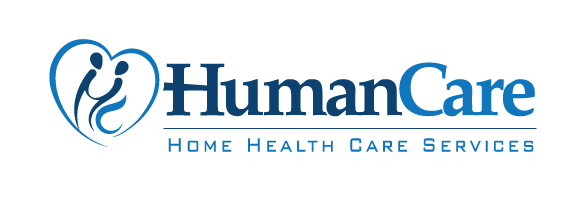A Comprehensive Guide to Nursing Home Bill of Rights in NY
Empower your loved ones with our guide to nursing home bill of rights in NY. Know their rights, protect their dignity.

Understanding the Bill of Rights
When it comes to understanding the rights of nursing home residents in New York, it is essential to familiarize oneself with the Nursing Home Bill of Rights. This comprehensive document underlines the key entitlements of residents in these facilities, ensuring they receive dignified, respectful, and autonomous care.

Basics of the Nursing Home Bill
The Nursing Home Bill of Rights in New York is a document that guarantees certain rights to residents of nursing homes [1]. This bill is based on federal and state law, with the primary aim of protecting the rights and well-being of nursing home residents.
A snapshot of some of these rights, as outlined by the New York State Department of Health, includes the freedom to participate in the personal care plan, voice complaints without fear of discrimination or retaliation, be fully informed about medical conditions and treatments, and be free from abuse, neglect, and mistreatment.
The Importance of the Bill
The significance of the Nursing Home Bill of Rights lies in its role as a guardian of the rights of nursing home residents. It functions as a yardstick for the standard of care that should be provided in these facilities, ensuring that residents are treated with the dignity and respect they deserve.
Additionally, this bill empowers residents by informing them of their rights, fostering a sense of autonomy. This includes their right to actively participate in the development of their care plans, including the development and revision of their individualized care plans.
Equally important is the right of residents to voice grievances or complaints about the care they receive without the fear of retaliation or discrimination. This serves as a protective measure, safeguarding residents from potential mistreatment, and ensuring the provision of high-quality care.
In summary, the Nursing Home Bill of Rights serves as a crucial tool in protecting the rights of nursing home residents in New York, ensuring they receive the high standard of care they deserve. It is a critical guide to nursing home bill of rights in NY that every resident and caregiver should familiarize themselves with. This understanding forms the foundation for advocating for the rights and well-being of nursing home residents.
Key Rights of Nursing Home Residents
In the realm of nursing home care, the residents' rights stand as the cornerstone of quality care and dignity. These rights, as outlined in the Nursing Home Bill of Rights in New York, serve as the guide to ensure that each resident is treated with respect and their individual needs are met.
Right to Participate in Care Plans
One of the salient rights of nursing home residents in New York is the right to actively participate in the development and revision of their individualized care plans. This involves having a say in their treatments, personal preferences, and setting goals for their well-being. By actively participating in the care planning process, residents have a direct hand in shaping their care and health outcomes. This right enables residents to voice their preferences and concerns, allowing them to participate in their own care plan without fear of discrimination or retaliation.
Right to Information and Consent
Nursing home residents also have the right to be fully informed about their medical conditions, proposed treatments, and any potential risks or benefits associated with those treatments. This includes the right to ask questions, seek clarification, and make informed decisions about their healthcare. This right extends to individuals with decision-making capacity or through authorized representatives. It underscores the importance of open communication and transparency between the healthcare providers and the residents, fostering an environment of trust and informed decision-making.
Right Against Abuse and Neglect
At the core of the nursing home residents' rights is the right to be free from abuse, neglect, and mistreatment. This includes protection against physical, verbal, sexual, and emotional abuse. Nursing home staff and caregivers are expected to provide care and assistance in a respectful and compassionate manner. Instances of abuse or neglect can and should be reported by the residents without the fear of retaliation. This fundamental right ensures that residents are treated with dignity and respect, promoting a safe and nurturing environment for their stay in the nursing home [1].
Understanding these key rights is essential for residents and their families to ensure that their stay in the nursing home is as comfortable and as dignified as possible. By knowing their rights, residents can actively participate in their care, make informed decisions, and protect themselves against potential abuse and neglect.

Financial Rights and Autonomy
Understanding the financial rights and autonomy granted in the nursing home bill of rights is crucial for nursing home residents in New York. Two main areas which we will be looking into are the right to manage personal finances and the recent legislation on financial disclosure.
Right to Manage Personal Finances
In New York, nursing home residents have the right to manage their own finances. This also includes the right to appoint someone to manage their finances on their behalf. Furthermore, residents are entitled to access information about their finances and any account transactions made on their behalf [2].
Nursing home residents have the right to manage their own financial affairs unless a court designates a guardian or conservator to handle such matters on their behalf. This legal provision safeguards the residents' autonomy in financial decision-making.
Recent Legislation on Financial Disclosure
Recently, New York has introduced new legislation affecting nursing homes' financial disclosure practices. As per Chapter 141 of the Laws of 2021, effective as of October 21st, 2021, nursing homes are now required to publicly disclose establishment applications, ownership, and contracts for goods and services. This law was enacted as chapter amendments to a bill from the 2021 Legislative Session.
The disclosure requirements for nursing homes also extend to posting a summary of their vendors and contractors, or a summary of their top vendors by dollar value, among other options. As of now, specific guidance on compliance with these requirements has not been released by the Department of Health (DOH).
These recent changes in legislation underscore the importance of transparency in financial matters in nursing homes. They contribute to ensuring that the rights of nursing home residents in managing their personal finances are upheld. The aim is to keep residents and their families informed about the financial operations of nursing homes, allowing for more informed decisions and promoting accountability.
Privacy and Grievance Rights
As part of the nursing home bill of rights in NY, residents are entitled to rights that protect their privacy and allow them to voice any complaints or grievances about their care. These rights are essential in maintaining the dignity and quality of life for nursing home residents.
Right to Privacy
Nursing home residents in New York have the right to privacy. This includes the freedom to communicate privately with visitors or advocates and the ability to keep personal possessions secure. These protections ensure that residents can maintain their personal space and conduct private communications without fear of intrusion.
This right is an essential part of the resident's autonomy and dignity, allowing them to feel more secure and comfortable in the nursing home environment. It also prevents potential violations of their personal space and belongings. Protecting this right is crucial in fostering a respectful and caring environment for residents.
Right to Voice Complaints
Residents also have the right to voice grievances or complaints about the care they receive without fear of retaliation or discrimination. Nursing homes must provide a process for residents to present grievances to the staff, as well as a timely response to those grievances.
In New York, the State Department of Health is responsible for investigating complaints about resident abuse, neglect, mistreatment, and incidents occurring in nursing homes in New York State that are related to State and/or Federal regulatory violations. This department's role ensures a level of accountability for nursing homes and provides residents with a way to seek help if their rights are violated.
Complaints against nursing homes can be filed by anyone, are kept confidential, and can be submitted anonymously. However, due to HIPAA regulations, the department cannot release patient-protected information. It's also important to note that complaints will only be accepted by the NY Department of Health if the occurrence is within the past year of the submission of the complaint [5].
Understanding these rights and how to enforce them is a crucial part of ensuring that nursing home residents are receiving the care and respect they deserve. Advocates, family members, and the residents themselves should all be aware of these rights and how to take action if they are violated.

Recent Changes in Legislation
Understanding recent changes in legislation is essential for residents, family members, and caregivers to fully grasp the implications of the Nursing Home Bill of Rights in NY. Two recent changes in legislation play a significant role in shaping nursing home operations: the Public Disclosure of Ownership and the Posting of CMS Star Ratings.
Public Disclosure of Ownership
In a move towards greater transparency, nursing homes in New York are now obligated to publicly disclose establishment applications, ownership, and contracts for goods and services. This requirement, as per Chapter 141 of the Laws of 2021, became effective on October 21st, 2021.
The law, signed into effect in June 2021, involves chapter amendments to a bill from the 2021 Legislative Session. The disclosure requirements extend to imposing new disclosure responsibilities on facilities, possibly encompassing a summary of their vendors and contractors, or a summary of their top vendors by dollar value. However, specific guidance on compliance with these requirements has not been released by the Department of Health (DOH) yet.
Posting of CMS Star Ratings
Another important legislative change is Chapter 441 of the Laws of 2021, which mandates the posting of the most recent Centers for Medicare and Medicaid Services (CMS) star rating by nursing homes. This law was signed on October 8th, 2021, and will be effective from January 6, 2022.
According to the new law, the overall star rating must be displayed prominently on the nursing home's website and within the facility for public viewing. However, it's worth noting that LeadingAge NY expressed opposition to this law. The organization argues that it imposes additional administrative requirements on nursing homes without significantly enhancing resident care quality or consumer information. They requested a veto of the bill from the Governor [4].
These legislative changes aim to improve transparency and accountability in the nursing home industry. Staying informed about these changes is crucial for prospective residents and their families when selecting a suitable nursing home.
References
[1]: https://www.ultimatecareny.com/resources/nursing-home-bill-of-rights-in-ny
[2]: https://freedomcare.com/nursing-home-resident-rights/
[3]: https://downloads.cms.gov/medicare/yourresidentrightsandprotections_section.pdf
[4]: https://www.leadingageny.org/advocacy/main/government-politics-and-advocacy-blog/recently-signed-bills-include-new-requirements-for-nursing-homes/
[5]: https://apps.health.ny.gov/surveyd8/nursing-home-complaint-form




















